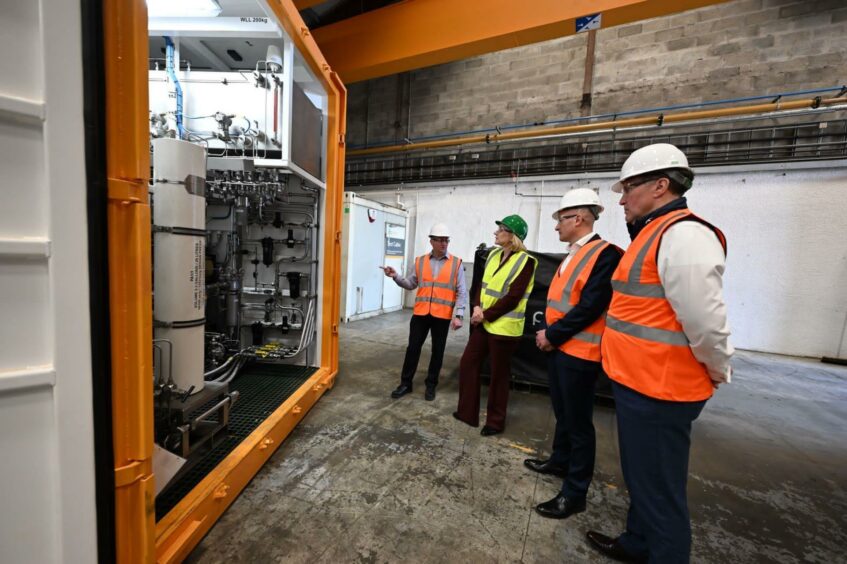
The UK’s bus and lorry fleets, plus many homes, could be running on low carbon hydrogen within two decades thanks to green technologies now being pioneered in three UK regions renowned until now for their carbon-intensive industries.
The North Sea Transition Deal, an agreement between our industry and the UK Government signed one year ago, will help make sure that UK businesses reap the benefits of initiatives like HyNet, based in north-west England and north Wales, and Zero Carbon Humber, in the northeast.
With a commitment that at least 50 percent of the work in these new areas is done by local businesses, the deal will help bring new opportunities to the supply chain in emerging sectors at a time when government is also encouraging producers to invest and continue to deliver secure and reliable energy to millions across the UK.
The Acorn Project in north-east Scotland has similar plans. All three projects are based around the concept of ‘clusters’ where hydrogen production plants are sited close to other industries that can use the fuel they produce.
Hydrogen burns without producing CO2 and contains so much energy that Nasa uses it to fuel space rockets. The UK Government has said mass production of the gas is central to the nation’s entire strategy for reaching net zero. Its Hydrogen Strategy suggests hydrogen could supply 20-35% of the UK’s final energy consumption by 2050.
The projects will also deploy carbon capture technologies to capture and safely store the waste CO2 generated in hydrogen production. Other industries in their local clusters, such as factories and power plants, will also be encouraged to capture their own emissions.
The Transition Deal also sets targets to dramatically cut production emissions for the North Sea oil and gas the UK will continue to need by 50% by 2030, 90% by 2040 and 100% by 2050.
It could generate up to £16billion in private sector investments, reduce CO2 emissions by 60 million tonnes and create 40,000 new jobs. The regions chosen to develop the first technology clusters will be among the biggest beneficiaries.
These three areas are pioneering technologies that achieve both aims. If we can clean up our own natural gas by turning it into hydrogen, and permanently storing the waste CO2, then the North Sea can become a secure source of low-carbon energy from gas. That’s in addition to the huge success of offshore wind which is set to quadruple by 2030.
The dreadful war and tragic events in Ukraine also underline the fact that the UK must minimise its reliance on imported energy. Whilst the climate crisis means we must also continue cutting greenhouse gas emissions.
OEUK has published a comprehensive plan that protects UK energy security without ‘Reliable and Responsible Partners: A Plan for Clean and Secure Energy’, recognising the vital role that the offshore energy industry continues to play in delivering the UK’s power and fuel supplies, underpinning the industry’s commitment to deliver a cleaner and more secure energy system.
The plan outlines a series of tangible steps for the UK Government covering the near, medium and long-term. Importantly, the industry’s net zero commitments remain at the heart of the plan, supporting the development of a cleaner energy system for the UK.
For over 50 years, the UK offshore energy industry has helped meet the UK’s power and fuel needs with domestically produced oil and gas, and the industry is committed to being a reliable and responsible energy partner. The changing context does not change the facts, and we continue to accelerate both the decarbonisation of our sector and the solutions required to decarbonise the UK economy.
I want to thank and support the people and businesses for their commitment to developing these technologies. Just one year after signing the North Sea Transition Deal, a greener future is beginning to take shape for the UK.
Recommended for you
